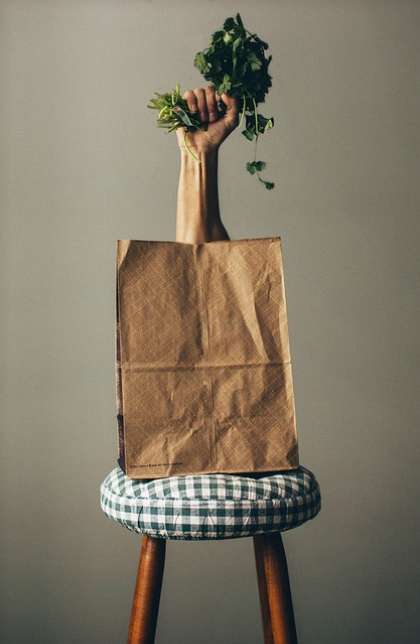Shopping for groceries in Poland has been one of the favorite pastimes of Polish housewives, although men have also recently taken to the job in recent years. During the Communist regime, in the late 1970s and early 1980s, groceries were often in short supply, and many “upper line” products, which included such all-round staples as ham or “real” coffee, were either completely beyond reach, or sold from under the counter.
Over the years the situation changed dramatically and today the large Polish market has not escaped the attention of the big and influential grocery chains, including the French Carrefour, Auchan or Leclerc, German Real, or British Tesco, with the small family-owned and international discount stores, including the Portuguese Biedronka and the German Lidl developing into a huge network of stores where you can shop until you drop.

The most popular items on the Polish shopping lists include bread (chleb) or rolls (bułki) and milk (mleko), but also butter (masło), all sorts of sausages (kiełbasa), various types of cold cuts (wędliny), cottage cheese (called ‘white cheese’ in Polish) (ser biały), and hard cheeses (called ‘yellow cheese’ in Polish) (ser żółty) which the nation quite simply adores. However, as the country has been exposed to foreign influence over the last two decades, the tastes have been changing and adjusting to the tastes of other European nations, with shops offering broader and broader supplies of deli items, such as olives (oliwki), Parma ham (szynka parmeńska), Parmesan cheese, all sorts of pasta (makaron), French soft cheeses, such as brie and camembert, English ready-to-cook meals, such as mince pies, offered mainly by Marks and Spencer, or the all-time American favorite – the peanut butter (masło orzechowe).
In the past almost none of the stores in Poland were self-service, with staff handing over goods as customers requested them, whereas today most are. Going to a Polish corner store is a bit of an experience in itself, as in most cases you will probably be able to take whatever you need from the shelves yourself, but there are the special areas where you will be served – these include cold cuts and cheese stations, and, if available, the meat and fish stations.
All weights are metric, with grams giving mostly way to decagrams, abbreviated in Polish to “deka” or “deko”, so be ready with the requisite knowledge of the system as you ask for a certain amount of your product, such as: 20 deko szynki szefa poproszę (20 decagrams of the Boss’s ham, please). A common way of expressing 250 grams in Polish is to use the expression of “ćwierć kilo”, which literally translates as “a quarter of a kilogram”. And so: Proszę ćwierć kilo sera edamskiego (A quarter of a kilogram of the Edam cheese, please). You have already noticed that all weighed products have their unique names – that’s right. The selection is huge, so make sure you give the right name to the assistant. Also, don’t forget that the prices shown for these products refer to 1 kilogram, so if you want to get a rough idea of the final price you will have to make the required calculations in your head beforehand, or simply look at the price label on the packaged product after it has been weighed.
A potential item on the list is alcohol, and Poles are known worldwide for their attachment to the national alcoholic beverage – vodka (wódka). Times have changed, however, and it appears that the nation has been consuming less and less vodka over the last two decades or so, with the prime replacement being beer, followed by wine. Alcohol is usually sold at the check-out counter, so you will have to ask for a bottle as you pay for the other items: I jeszcze pół litra Żubrówki poproszę (I’ll have a half liter of the Żubrówka as well). With this last item probably completing your grocery needs, you are ready to head home and treat yourself to a home-made meal followed by a glass of Żubrówka or two.